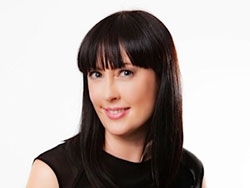Australia was left reeling when the worst bushfires in the nation’s history razed Victoria on February 7, 2009.
Black Saturday claimed 173 lives and injured 5000 people, destroyed more than 2000 homes, displaced more than 7500 people and killed thousands of animals while more than one million acres were burnt.
Subscribe for FREE to the HealthTimes magazine
The disaster prompted the establishment of an expert reference group, featuring psychologists from the
Australian Psychological Society (APS) as well as occupational therapists, social workers, psychiatrists, general practitioners and several health organisations such as the
Phoenix Australia – Centre for Posttraumatic Mental Health.
The group developed a best practice framework to guide the provision of support and mental health care to communities coming to grips with natural disasters, such as floods, bushfires, earthquakes and cyclones, along with other emergencies.
APS senior psychologist Dr Susie Burke says the framework has three levels of support aimed at providing psychological assistance targeting both the affected individuals and communities and also the health professionals working to improve people’s psychological recovery.
FEATURED JOBS
St Vincent's Private Hospital
Dr Burke says level one features advice and support to people and communities in the immediate aftermath of a disaster.
“These are the things that would be useful in the hours, days and early weeks after a disaster when we expect that people’s needs are mainly for physical recovery, shelter, clothing, finding documents and getting themselves into a safe place,” she says.
“Their psychosocial needs are not met with health professionals as much as they are by family and friends and informal supports, and also the support of organisations like Red Cross or other disaster NGOs.”
Level two focuses on health professionals tapping into simple psychological strategies to teach practical psychological skills to people affected by disasters.
Dr Burke says the strategies, Skills for Psychological Recovery (SPR), were developed in the wake of Hurricane Katrina, renowned as one of the five deadliest hurricanes in the history of the United States.
“Hurricane Katrina was the most recent enormous event that impacted so many thousands of people,” Dr Burke says.
“They wanted to equip health professionals with something that could be used for a large number of people who might not be at risk of going on to get post traumatic stress disorder (PTSD) or depression but who nonetheless are really disrupted and impacted by the event.”
APS offers SPR resources and training which has since prepared health professionals across Victoria, Queensland and South Australia to provide affected individuals with five key skills - problem solving, promoting positive activities, managing reactions, helpful thinking and rebuilding social connections.
Dr Burke says these essential skills, such as problem solving, can help people cope with confronting challenges, including the rebuilding of their lives in the aftermath of a disaster.
“If you think about it - when your home has been destroyed and you need to find a new place to live and you can’t find a new place to go to, and your kids are at school and the school was destroyed as well and you have to find a new school.
“Disasters throw up a whole lot of problems and people can become overwhelmed with the sheer scale of problems that they’ve got.
“So teaching people problem solving skills and being able to prioritise which is the most urgent problem that is kind of blocking them being able to think about any of the other problems.
“It’s breaking down that problem and being able to brainstorm a whole lot of different options and being able to meet that problem.”
Level three of the framework covers the formal evidence-based psychological interventions for people with severe distress, at risk of developing mental health problems such as depression, PTSD and complicated grief.
“This level of intervention is what psychologists might see as being their area in recovery after disasters, which is helping the 10 to 15 per cent of an affected population that might be at risk of going on to develop significant mental health problems,” Dr Burke says.
Dr Burke says the three levels of support are offered at different stages - based on the level of distress and the timing in the wake of the disaster.
“A lot of the work we’ve been doing over the last six years or so is actually trying to educate the public and health professionals that it’s not just psychological therapy in the level three type intervention that’s needed after a disaster but there are levels of support that are appropriate at different stages,” she says.
The most important factor in people’s psychological recovery, regardless of the type of disaster or event, is accessing social support, Dr Burke says.
“You really want to give people a chance to draw on their own resources, draw on their own families and friends for support and activate their own coping resources before health professionals sweep in and offer services,” she says.
“The other reality too is that in our current climate change scenarios the number of disruptive extreme weather events that we are going to be impacted by will escalate and it’s just not possible for us to be able to treat, meet people’s mental health needs or needs for psychosocial recovery through health professionals.”
The APS has a
range of resources on its website for psychological preparedness for disasters such as bushfires and heatwaves, cyclones and floods, enabling people to prepare for the emotional challenges of living through emergencies.
It also features resources for disaster recovery, for the public and health professionals, alongside links to a range of additional resources, including the
Disaster Response Network of APS psychologists and the
Psychological Support in Disasters web portal.













